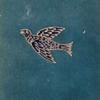This book was read as part of The Rory List
Synopsis (from amazon)
Born into a Jewish ghetto in Hungary, as a child, Elie Wiesel was sent to the Nazi concentration camps at Auschwitz and Buchenwald. This is his account of that atrocity: the ever-increasing horrors he endured, the loss of his family and his struggle to survive in a world that stripped him of humanity, dignity and faith. Describing in simple terms the tragic murder of a people from a survivor’s perspective
Review
I have started and stopped this review a number of times. I want to write it, but somehow it seems that reviewing a book of somebody’s experiences, especially such horrible experiences, makes it loose some of its importance. I’ve written reviews of this type of book before, but only when I’ve been asked to, in which case I feel duty bound to write a review, even if I feel it trivialises something, This is the first time I’ve reviewed a book like this by choice, and to say anything that isn’t the highest praise seems wrong.
I suppose what that means is that I am not one of those people blown away by Night. There is one thing about autobiographies, when it’s something which is real you can be more matter of fact about it, or writing re-feels the emotions, which makes it more matter of fact. With fiction it’s more detached, you are writing about imagined emotions, it can still be hard, because you are attached to a character.
We had to write autobiographical pieces when I was in sixth form, I wrote about my osteoporosis (which I spoke about here, when discussing Handle With Care). My teacher praised my piece because of a lack of self pity, but for me it’s nothing special, it’s just my life, matter of fact.
When it comes to something emotional though, I think this can make it less hard hitting than fiction. In a way Wiesel’s experiences didn’t seem to be the worst. Not that they weren’t horrible experiences, but you didn’t get the same sort of descriptives that you might get in a fictional book, which made it seem…less. It was partially balanced out by knowing that it was real. Fiction is fiction, even when based on fact, you can’t know how much can really be close to how it really was. With non-fiction at least you know what you are reading is true. Maybe it’s less descriptive, less emotional, but in the end it means more.
Sometimes I think that I read too much about the Holocaust, like I’ve become somehow sensitised to it. Did that make a difference to how I viewed Night? Probably. Did the fact that it has been so praised mean that I was expecting more? Possibly. The first edition of Night in a similar version to what we now read was published thirteen years after the end of World War Two. At that time it may have been more powerful. It was probably an event which lived much more in the memory at the time, and people would remember finding out the full truth of what the Nazis did. Those who had been through the concentration camps may have had enough time to start talking, and I imagine there was not much literature about the events, it was too soon. It would have given people truth that they may not have otherwise seen.
Night is still powerful. Still important. The writing is still good writing. However there was a certain lack of detail which I hadn’t expected, maybe I would have liked that. It is reported that Wiesel said he had originally written a manuscript in Yiddish which was over 800 pages long, maybe the less edited version was more detailed, maybe too much so. Would it make it harder to read, and therefore read less widely?
I’m not going to give a score because I don’t feel this can be scored.
Buy it from amazon:
Paperback (£7.19)
Kindle (£3.49)
Other reviews:
Did I Miss Your Review? Leave Me a Link in Comments And I Will Add it Here







